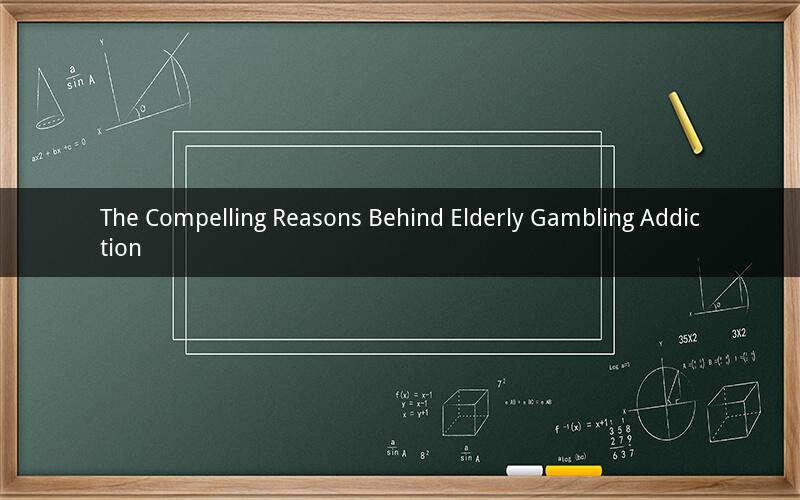
Introduction:
Gambling addiction among the elderly is a growing concern that requires thorough understanding and attention. This article delves into the various factors contributing to why older adults may develop an addiction to gambling. By exploring these reasons, we aim to shed light on the complexities surrounding this issue and promote awareness and support for those affected.
1. Financial Strain:
One of the primary reasons why older people may become addicted to gambling is financial strain. Retirement often means a decrease in income, and many seniors struggle to make ends meet. Gambling can provide a temporary escape from financial worries, offering the illusion of a quick solution to their problems. However, it often leads to further financial distress and addiction.
2. Boredom and Isolation:
Retirement can be a time of significant change for older adults, often accompanied by increased boredom and isolation. With fewer social interactions and a lack of stimulating activities, some seniors may turn to gambling as a form of entertainment. The thrill and excitement of gambling can fill the void left by a lack of engagement, making it an appealing activity for those seeking to alleviate boredom.
3. Cognitive Stimulation:
Gambling can provide cognitive stimulation, which may be appealing to older adults who are looking for mental challenges. The strategic thinking and decision-making involved in certain games can keep the mind active and engaged. However, this cognitive stimulation can sometimes lead to an addiction, as individuals become increasingly reliant on gambling to satisfy their need for mental stimulation.
4. Social Connection:
Gambling can also serve as a means for social connection among older adults. Many casinos and gambling establishments offer opportunities for social interaction, providing a sense of belonging and camaraderie. For individuals who may feel isolated or disconnected from their community, gambling can offer a chance to connect with others who share similar interests.
5. Emotional Distress:
Emotional distress can be a significant factor contributing to gambling addiction among the elderly. Many seniors may experience depression, anxiety, or boredom, leading them to seek relief through gambling. The temporary relief provided by the thrill of winning can create a cycle of dependency, as individuals continue to gamble in an attempt to escape their emotional pain.
6. Advertising and Marketing:
The increasing presence of gambling advertisements and marketing can also contribute to the rise in elderly gambling addiction. With the proliferation of online gambling platforms and the promotion of gambling-related activities, older adults may be more exposed to the allure of gambling. The persuasive nature of these advertisements can make it difficult for some individuals to resist the temptation to engage in gambling activities.
7. Lack of Awareness:
A lack of awareness about the risks and consequences of gambling addiction can also contribute to its prevalence among the elderly. Many older adults may not recognize the signs of addiction or understand the potential harm it can cause. This lack of awareness can lead to a delayed diagnosis and treatment, exacerbating the severity of the addiction.
Q1: What are the signs of gambling addiction in the elderly?
A1: Signs of gambling addiction in the elderly may include increased time spent on gambling activities, financial difficulties, secrecy surrounding gambling, borrowing money to gamble, and neglecting other responsibilities.
Q2: How can family members support a loved one struggling with gambling addiction?
A2: Family members can support a loved one struggling with gambling addiction by offering empathy, understanding, and support. They can encourage seeking professional help, attending support groups, and creating a safe and supportive environment for their loved one.
Q3: Are there any treatment options available for elderly gambling addiction?
A3: Yes, there are various treatment options available for elderly gambling addiction. These include individual therapy, group therapy, support groups, and specialized programs designed to address the specific needs of older adults.
Q4: Can gambling addiction be prevented in the elderly?
A4: While it may not be possible to completely prevent gambling addiction in the elderly, there are steps that can be taken to reduce the risk. These include promoting healthy lifestyle choices, fostering social connections, and providing education about the risks and consequences of gambling.
Q5: How can communities support older adults who are struggling with gambling addiction?
A5: Communities can support older adults struggling with gambling addiction by providing resources such as counseling services, support groups, and educational programs. Additionally, raising awareness about the issue and promoting a stigma-free environment can help individuals seek help without fear of judgment or discrimination.